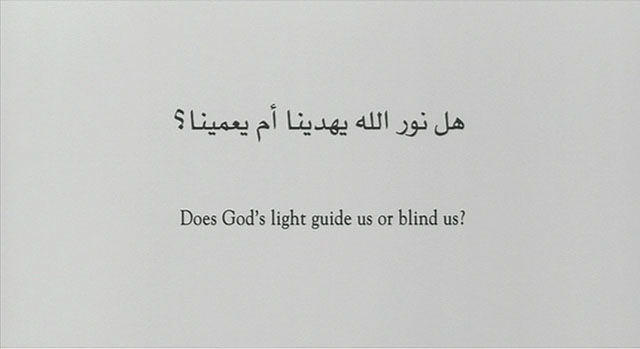Anthology film, with segments listed in decreasing order of greatness.
IRAN
A schoolteacher, an Afghan refugee in Iran with no equipment or facilities, tries to convey the 9/11 attacks to children whose world doesn’t extend far beyond the local well. By Samira Makhmalbaf (At Five in the Afternoon)

BURKINA FASO
“Bin Laden, come back, please. We all need you here.” Idrissa Ouedraogo, director of Tilai, turns in an unlikely comedy. A kid has to drop out of school to support his mother, thinks he spots Osama Bin Laden, so he and his friends set out to capture him for the reward money. Osama gets away, the kids pleading for him to return so they can get paid. Kind of hilarious and awesome.

INDIA
Mira Nair, following up Monsoon Wedding (and working with the same writer), recounts a based-on-true story of a woman whose son goes missing on Sept 11, is accused by the authorities of being a terrorist before he’s discovered to have been trying to help. The mother (Tanvi Azmi, I think) is excellent in this. When first questioned by the FBI, she points to her son’s posters, saying he’s American, he loves Star Wars, but she doesn’t say it defensively, just as a mother delightedly telling someone about her son. The final shot in this segment is my favorite of the whole anthology.
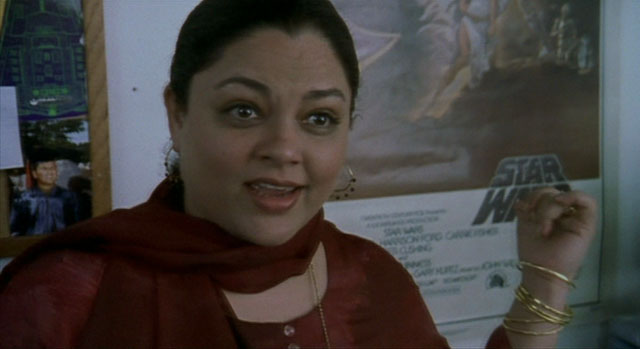
UNITED KINGDOM
Ken Loach, between Sweet Sixteen and Tickets, takes a completely anti-sympathetic approach, choosing to discuss the American-backed Sept. 11, 1973 coup that killed Salvador Allende, including footage from The Battle of Chile. There was probably a time I would’ve considered this tacky, but now I’m thinking “good for you, Ken Loach.”

USA
Sean Penn, recently off The Pledge (and I Am Sam, shhh), shoots an Ernest Borgnine one-man show in a grubby apartment in the shadow of the towers. Ernest putters around, laying out clothes for his absent wife, talking constantly, in his own crazy world, tending to a pot of dead flowers. Tower 1 goes down and sunlight flows through Ernie’s window for the first time in decades, bringing the flowers magically to life but waking him up to the reality that his wife is gone. Weird, sad one… I liked it better than Katy did.

JAPAN
The final film of Shohei Imamura (The Eel, Vengeance Is Mine), with writer Daisuke Tengan (Audition, The Most Terrible Time In My Life), and if Shohei were alive he’d have some explaining to do. A man returns from the holy war (WWII) a spaced-out wreck, thinking he’s a snake (Katy did not appreciate the scene in which he swallowed a rat). Closes with the line “There is no such thing as a holy war.” Very odd way to end the anthology… still not sure what I think of it, though Mr. Grunes has named it one of his ten faves of the decade.
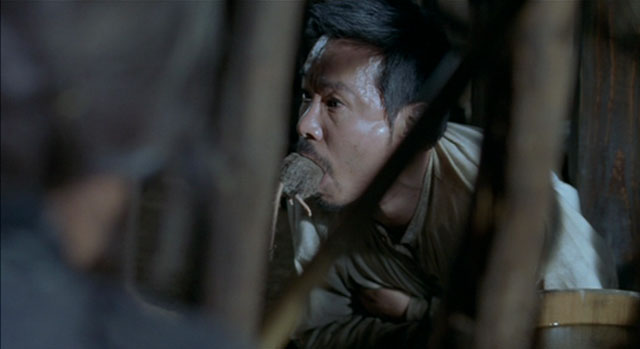
FRANCE
Claude Lelouch (Roman de gare) directs an offbeat story of a French tour guide for the deaf in NYC. His girlfriend is writing him a note saying she’ll leave him unless there’s a miracle, then he comes home covered in dust. I liked it better the second time through.

BOSNIA-HERZEGOVINA
In 2002 director Danis Tanovic was high off his oscar-win for No Man’s Land. Since then, he’s adapted a Kieslowski script (Hell) and made one with Colin Farrell and Christopher Lee that played in Toronto. Women are going out for their weekly protest of something (local war/genocide) when 9/11 hits. They don’t know what to do, go protest anyway. Lightweight.
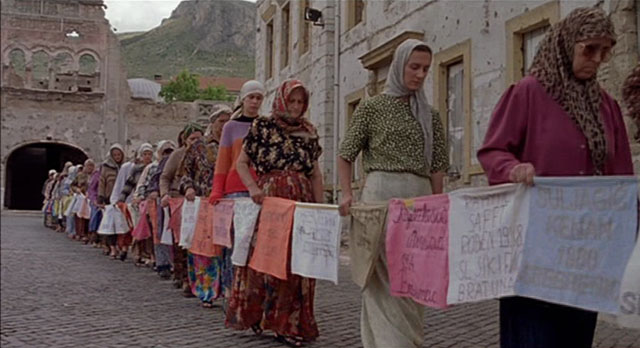
ISRAEL
None of my Amos Gitai experiences have been happy ones. Starts with a guy disarming or examining a bomb after another explosion has already killed a few people, then the news team covering the event is told they’re not on the air because of coverage of 9/11. Gitai could be saying local problems feel humble compared to the scope of the 9/11 attacks, or maybe that America is hogging the spotlight away from his country’s problems, or possibly that it’s all Palestine’s fault.

EGYPT
Youssef Chahine seems like a humorless Elia Suleiman, not that I know more about either of them than their Chacun son cinema segments. Here, Chahine pulls the same trick as in that anthology, a piece where I think he’s full of himself, then I think maybe he’s joking and it’s modesty in disguise, but no, he is just full of himself. Someone said “Youssef, write a September 11th movie” and he scribbled down every thought that came to mind then filmed them in that order.
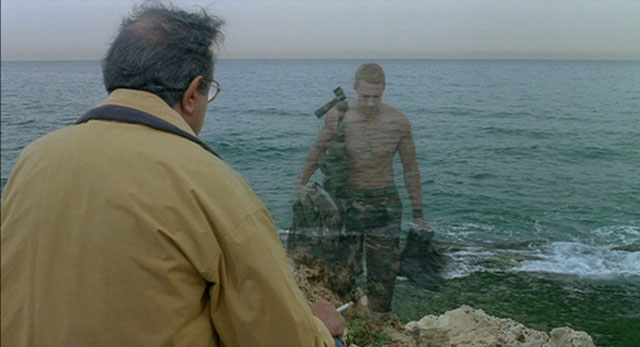
MEXICO
Alejandro González Iñárritu, between the great Amores Perros and the not-great 21 Grams, shot ten minutes of black punctuated occasionally by shots of people falling from the towers and closing with this quote.
